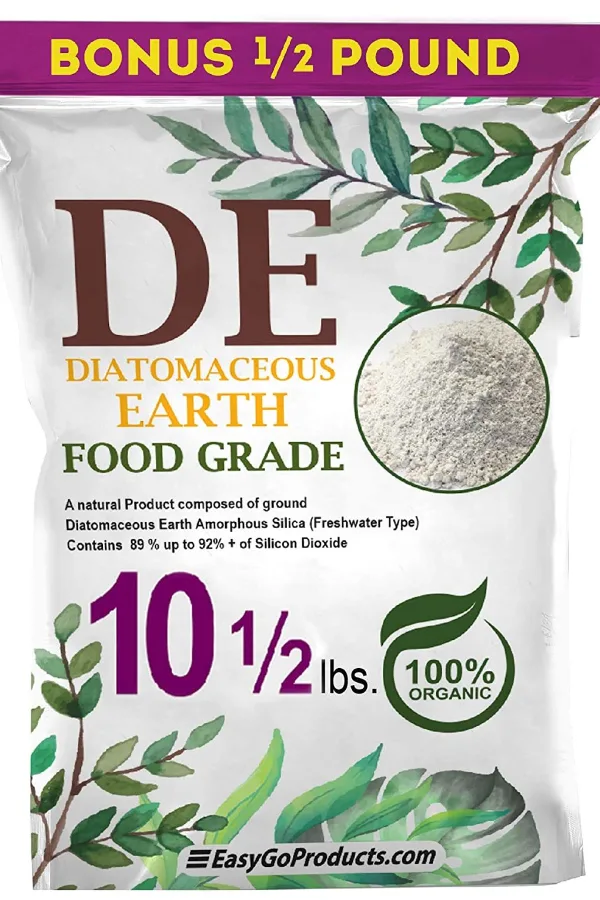Is it really possible to stop slugs naturally? You bet it is! Unfortunately, the past few weeks here at the farm have been exceptionally wet. And because of that, the slugs have certainly enjoyed a resurgence. But we have been ready with an answer!
Slugs prefer cool and damp conditions. And although it has been a bit warmer here than usual, the extreme moisture and dampness have allowed them to thrive.
Slugs can wreak havoc and cause serious damage to all kinds of plants in the landscape. From tender young vegetable plants, to annual flowers, perennial plants and more – they show little mercy with their veracious appetites.
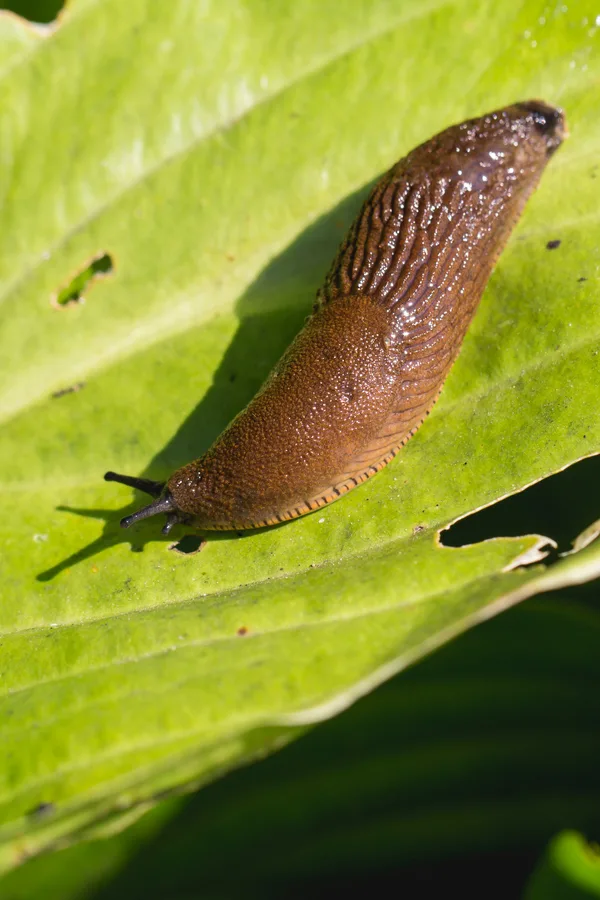
They quickly chew their signature holes into the leaves of plants, leaving them weak and damaged. The slimy, slithering creatures can destroy plants overnight. In fact, one of the reasons slugs are so hard to control is that they do almost all of their damage while you sleep.
Slugs are night-time creatures, coming out in the damp, moist and cooler overnight temperatures. As you are waking up, they slither to hide under leaves or in the soil. Waiting, of course, for the skies to darken again to come out, dine and multiply!
5 Great Ways To Stop Slugs Naturally
The good news is that you can limit both their population and damage with a few simple natural remedies. And yes, speaking from experience here on the farm, the 5 solutions below really do work!
But with that said, remember that the biggest key of all to stopping slugs is persistence. Daily checks of your flowerbeds and plants only takes a few minutes, but it can keep you ahead of the game in dealing with the damage they can cause.
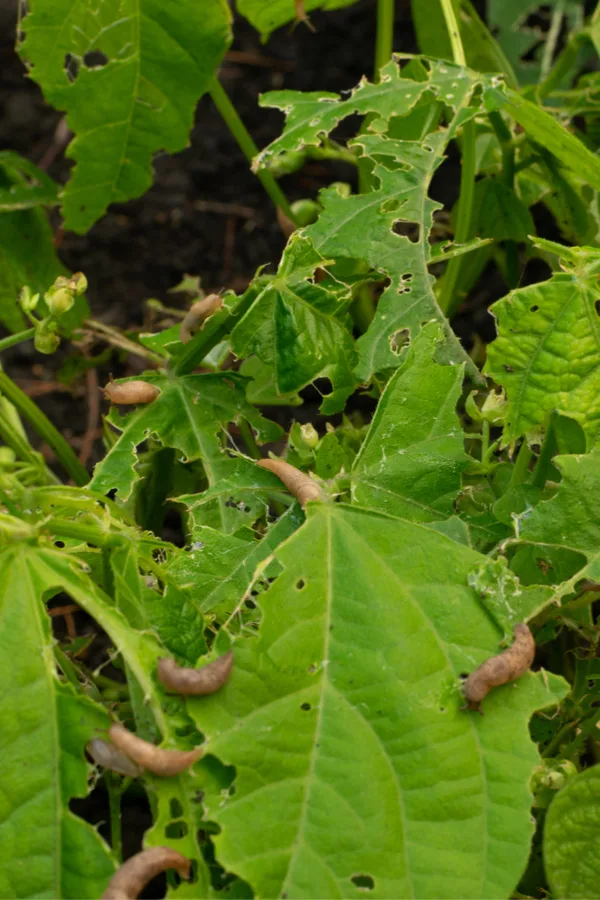
When allowed a few days or a week to multiply and dine, the damage to plants can be severe. Especially for young, tender vegetable plants and annual flowers. With that in mind, here are 5 natural methods for stopping slugs:
#1 Hand Picking
Believe it or not, this simple method for control is one of the best of all. In fact, more times than not, with most pests, hand picking really does work.
Unfortunately, all too often, instead of picking a few pests off of plants, folks instead reach for harsh sprays. But those sprays often kill all insects, including beneficial ones that help keep populations of other pests in check. And once that happens, infestations can really become a problem!
When it comes to hand picking slugs, you need to check plants in the evening or early morning. The best times are right after the sun goes down, or right before it rises.
Check Out Our Latest Garden Podcast:
Head out to your flowerbeds and garden area with a flashlight and a jar of soapy water. Shine the light on the underside and tops of leaves. The slugs will light up, and you can simply pick them off and put them into the soap and water to kill them.
Although it sounds so simple – it really works wonders in controlling most slug populations and damage. The key however is to keep checking every day until you see no sign of the slimy creatures.
#2 Copper Tape / Copper Strips
Although the reason it works is not fully understood, copper is actually a great deterrent against slugs. It is thought that perhaps the slimy make-up of the slugs outer skin reacts negatively with the copper.
But for whatever reason, it really works in repelling slugs from plants. Especially when placed around young vegetable plants to keep slugs from climbing aboard.
You can protect plants by placing small strips of copper like a collar around the base of plants. This copper fence keeps slugs from getting to the base of plants, and hitching a ride up for an evening buffet.
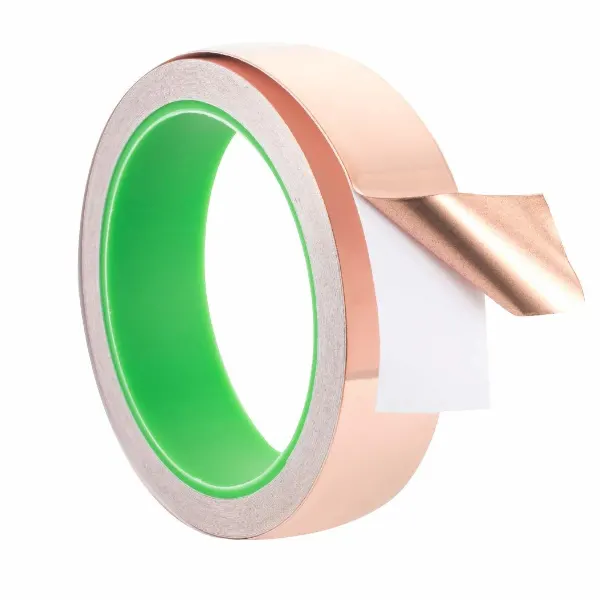
Copper can be expensive, but copper tape rolls can be purchased for around $10 – $12 and are an effective and more affordable option. Rolls are usually 30′ or longer, and can protect hundreds of plants if needed.
#3 Coffee Grounds & Egg Shells
Coffee grounds really are a gardeners best friend! The rough edges of coffee grounds are deadly to the slimy skin of slugs. When they attempt to crawl over the grounds, the sharp edges act like razor wire.
Not only will it stop slugs cold in their tracks, the coffee grounds have a wonderful side effect for plants. They also act as a natural fertilizer, releasing small amounts of nitrogen and other trace nutrients to plants.
Like coffee grounds, crushed egg shells stop slugs with their sharp edges too. Crush a few shells up in your hand and sprinkle around the base of plants. Just like the coffee grounds, the eggs shells will add nutrients to the soil as they decompose.
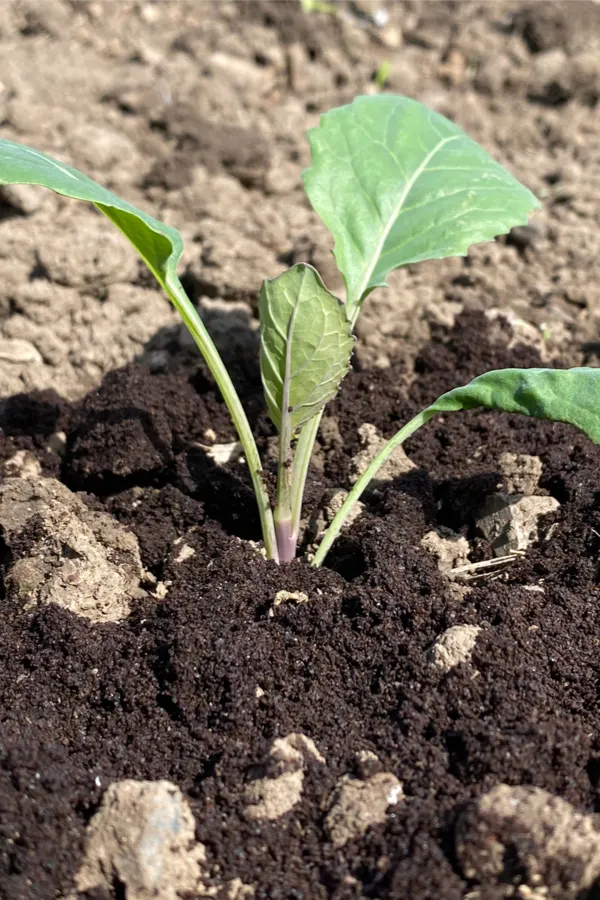
Egg shells and coffee grounds can actually be used all over the garden with great results. Check out our article Using Coffee Grounds & Egg Shells In Your Garden & Flowerbeds for more information.
#4 Melon Rind & Beer Traps
Slugs love the rinds of melons. And they love beer too -and both can be used to make a great trap! To make a melon trap, simply take leftover rinds, and lay them along the edges of the garden in the evening.
Be sure to turn them upside down and place lightly into the soil. When you return in the morning, you will have a virtual slug party on the rind. This method does not kill the slugs, but allows you to trap and dispose of large populations quickly.
Beer traps are one of the most well-known of natural ways to stop slugs. Slugs for one reason or another love beer, and are highly attracted to it.
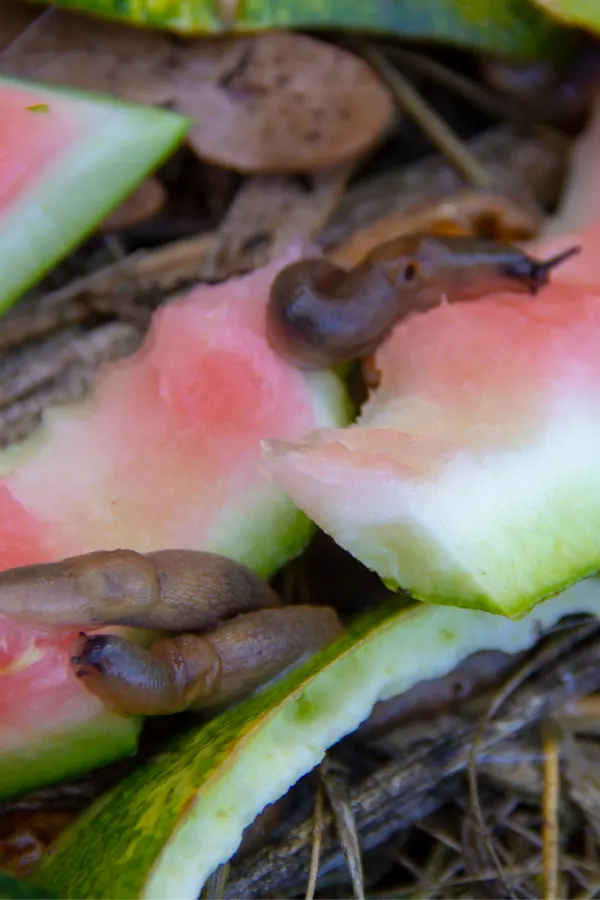
Beer traps definitely work, but there are a few things that will increase the likelihood of success. Use smaller flat style containers filled to the halfway point with beer. Small plastic food containers or tuna cans work well for this.
The slugs are attracted to the beer, then easily crawl into the bowl and drown. Keep traps near the edge of gardens to draw slugs outward, not into the garden. In addition, keep fresh beer in the traps each evening.
#5 Diatomaceous Earth
Diatomaceous earth is a fine, chalky-like substance that is all natural. It is created from the fossilized remains of microscopic creatures from long ago.
The dusty substance has microscopic razor-like edges that cut into the body of slugs. As it cuts into their skin, it dries out the slugs outer skin, stopping them in their tracks.
It can be sprinkled on and around plants, or even dusted onto the foliage to prevent slug damage. Diatomaceous earth works best in dry conditions, so only use when the threat of rain is minimal.
In addition, this should be used with caution as it can kill other beneficial insects as well. But if you have a severe infestation, it can be the answer to get it under control.
Here is to stopping slugs in your garden and flowerbeds this year. Happy Gardening! – Jim and Mary.
Jim and Mary Competti have been writing gardening, DIY and recipe articles and books for over 15 years from their 46 acre Ohio farm. The two are frequent speakers on all things gardening and love to travel in their spare time.
As always, feel free to email us at thefarm@owgarden.com with comments, questions, or to simply say hello! You can sign up for our free email list in the subscribe now box in the middle of this article. Follow us on Facebook here : OWG Facebook. This article may contain affiliate links.

